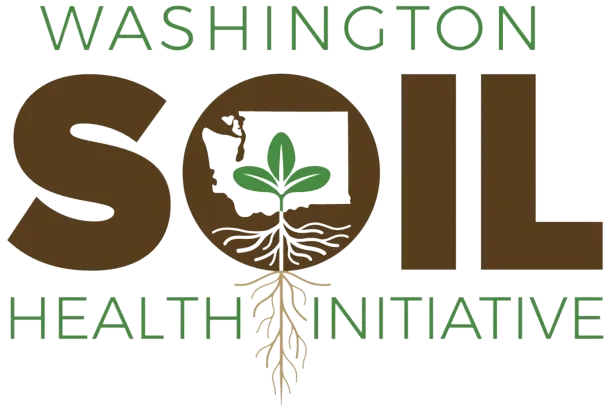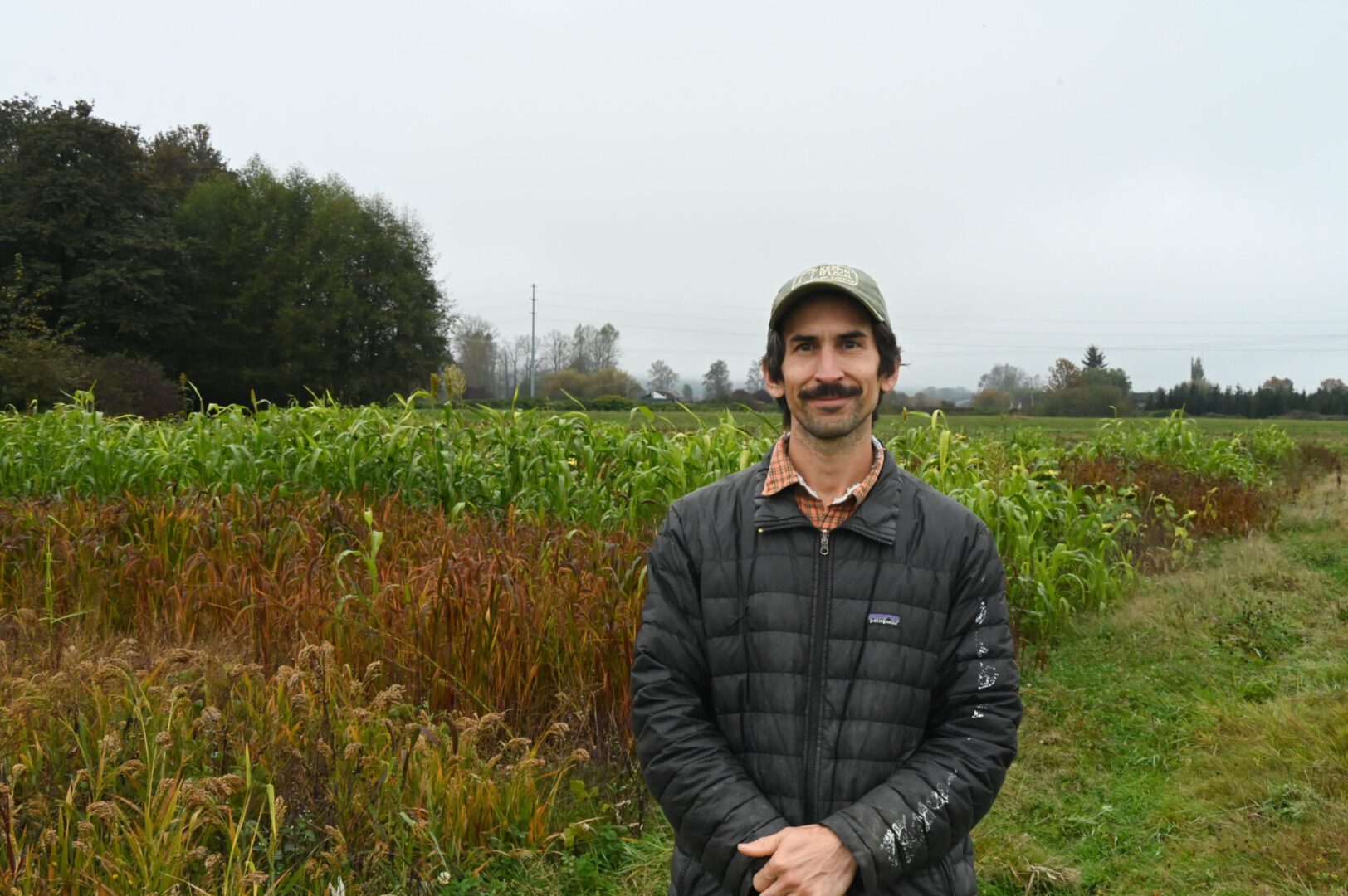
© Leslie Michel, WSDA
Soil Health Ambassador: Anthony Reyes – Cover Cropping for Sustainable Agriculture
Congratulations to Anthony Reyes for receiving WaSHI’s 2024 Producer of the Year Award!
February 4, 2025
Author: Leslie Michel, Washington State Department of Agriculture, Quotes from Anthony Reyes
Anthony is the Agriculture Program Manager at Oxbow Farm and Conservation Center in Snoqualmie Valley in King County, Washington. Oxbow operates on 240 acres, with 30 acres actively managed each year in annual vegetable production, rotational fallow, and cover crop experiments. Oxbow produces certified organic mixed vegetables, herbs, and flowers, in addition to educating K-12 students, operating a native plant nursery, and overseeing ecological restoration projects.
With the many incredible farmers in Washington State, it was a tough decision for the WaSHI award committee. However, Anthony received more than 10 nominations from members of the community. His colleagues touted his knowledge and passion for soil health, as well as his infectious enthusiasm for igniting curiosity in the students that visit the farm.
One nominator noted: “Anthony is truly working in collaboration with the land and working to shift the community's understanding of farming toward collaboration as opposed to extraction.”
Anthony’s commitments to soil health leadership are many. He has partnered with the Natural Resources Conservation Service (NRCS) Plant Materials Center and Washington State University (WSU) on cover crop trials. He serves as a mentor for farmers in the Transition to Organic Partnership Program and provides consultation to small farmers starting their own operations. Anthony frequently lectures in sustainable agricultural training programs, including at Organic Farm School on Whidbey Island. Anthony also published a Fertility Guide Companion to support farmers manage their crops and soils while reducing pollution.
Oxbow is committed to partnering and distributing their produce through hunger relief organizations while continuing to sustainably manage and improve their soils and resources and share learnings and (inevitable) pitfalls.
To learn more about Anthony Reyes and Oxbow Farm and Conservation Center, watch our interview or read the (minimally edited) transcript below.
What made you interested in soil health and implementing soil practices?
Anthony: I became interested in soil health in a similar way to how I got into farming and agriculture. I was trying to learn about my own past and history. My grandpa came as a farm worker and railroad worker in Florida and moved across the country. It started me on this journey of looking at policy and theory behind agricultural production.
Once I started working on farms, I shifted that focus, and it became more about relationships. Soil health, to me, really comes down to creating spaces where you're able to facilitate relationships and create a dynamic and diverse community—seeing the soil as this microcosm that permeates through distribution, our relationship with our customers, our community.
One of the reasons I really enjoy soil health work is being able to understand the land and the soil and in a much deeper and intimate way. Soil feels like such a key part of the cultivation and facilitation of relationships, and it's often overlooked.
I'm thinking of a Ceasar Chavez quote, “If you really want to make a friend, go to someone's house and eat with him…The people who give you their food give you their heart.”
The core aspect of that is the connecting power of food. It's a common thread with everybody. Soil is one of the most beautiful and exciting resources we have.
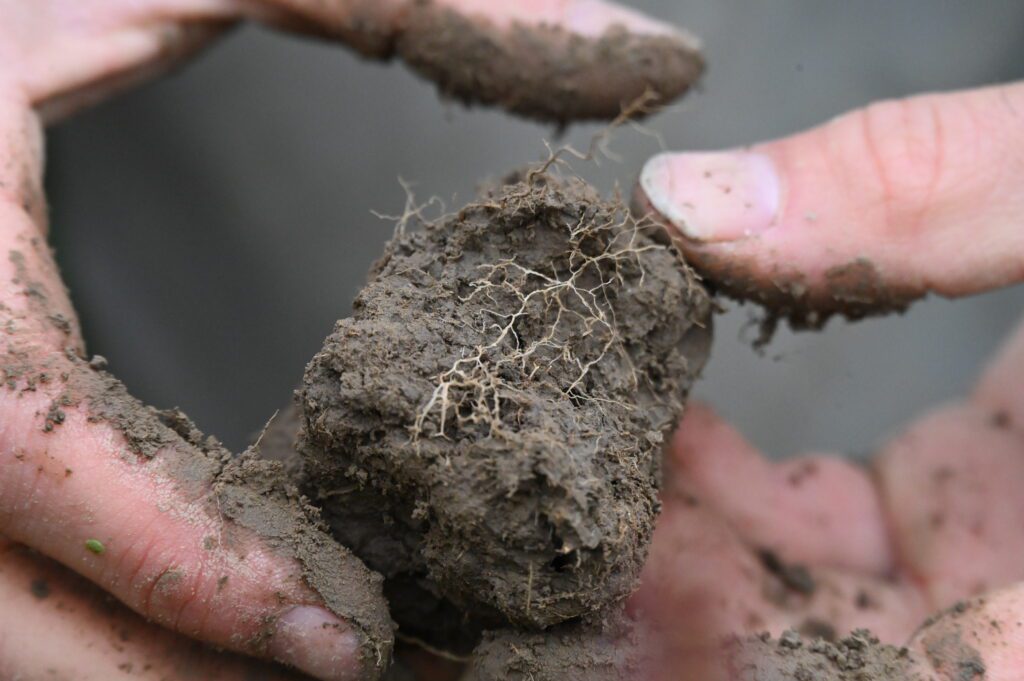
Soil under cover crop, with roots - © Leslie Michel, WSDA
Can you tell us more about what soil health practices you use?
We use compost applications and cover crops. We have a roughly 10-year crop rotation throughout the fields, and we'll always have at least two years of cover crops before going back into vegetable crops.
We take extensive soil samples, then compile data into compost fertilizer regimens based on what we're growing and what was growing in the past. We also try to time applications for when the plants need those nutrients the most.
We apply rotational compost, so we might apply once every three years. Compost can be cost prohibitive, especially when we're thinking about applying it on 30 acres. We apply about 10 dry tons per acre, every three years, and supplement with fertilizer made of fish, fishbone, and feather meal.
A lot of the cover crops we try in the summertime will be things like millets. We're growing proso and German foxtail millet. We'll also grow sorghum Sudan. I think my favorite has been the sunflowers partially because they’re beautiful but also seeing the wildlife benefit.
In all the production fields next year we'll grow a cover crop mix with 10% oats and 90% pea and bean legumes. And then we'll have fields that will be in a triticale and vetch cover crop next year. We've also done some early season barley/pea mixes to serve as a summer cover crop, and experimented with growing mung bean, cow peas, and a few different types of clovers.
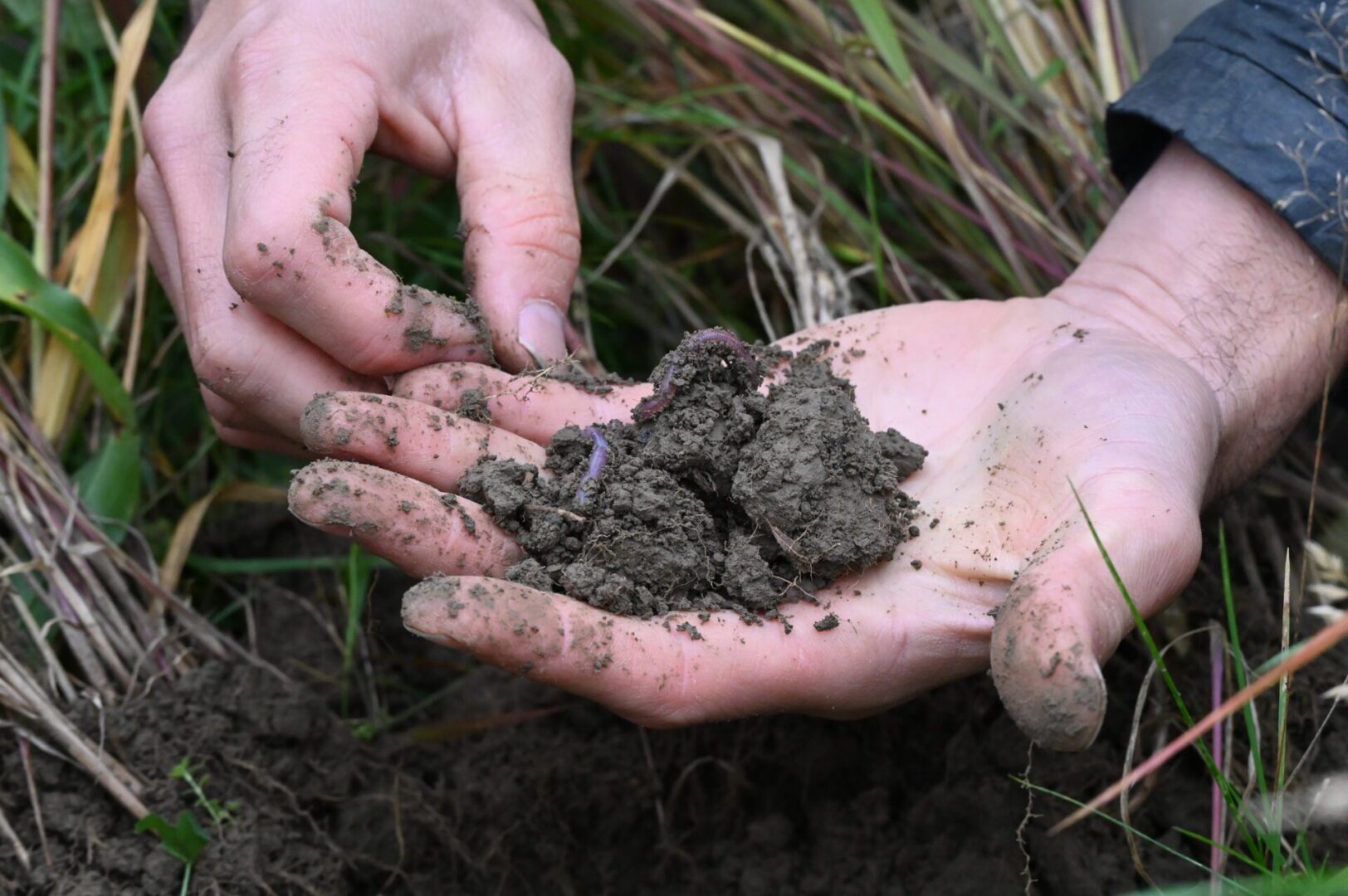
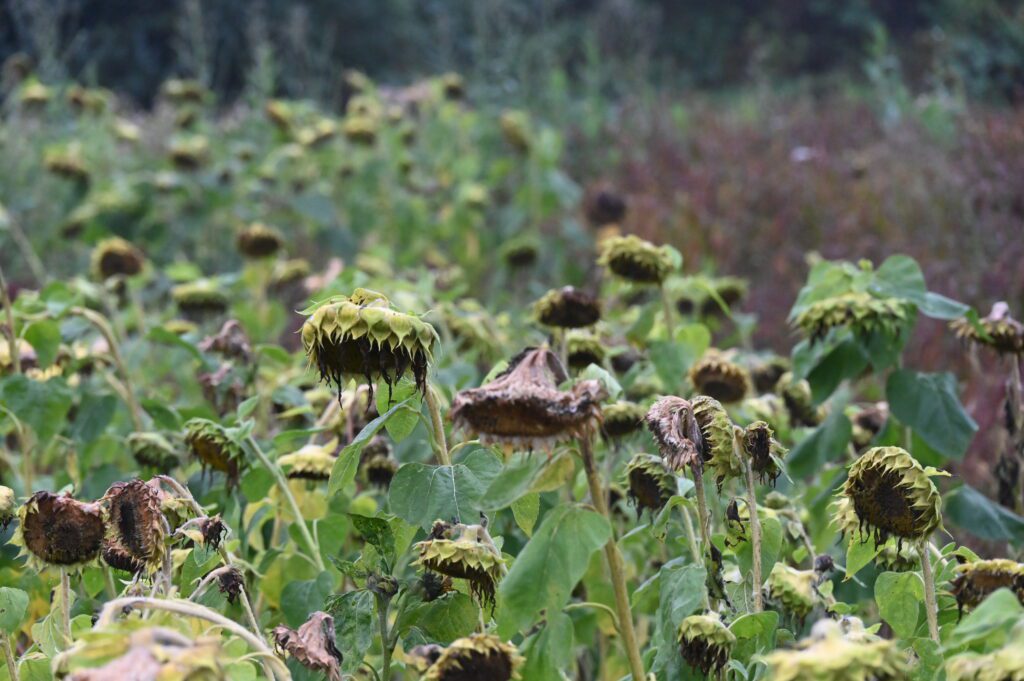
Left: Earth worms under the cover crop. Right: Sunflowers - © Leslie Michel, WSDA
What advice would you give people interested in adopting soil health practices?
The advice I would give farmers and producers is to maintain curiosity and humility. The more you uncover with soil and soil health, it's just such a beautiful and vibrant and diverse community. It's going down a path of lifelong learning, which I find the most exhilarating and most exciting.
Every single time I think, ‘All right, I have this figured out. It's all going to be perfect,’ inevitably everything goes wrong. But I learn a lot from that. And then every single year it's a little bit better than the last and a little bit better than the last. Each year the things that I’m learning are different.
But the main thing is just maintaining curiosity, humility and an open mind.
Why is it important to you to adopt soil health practices?
Soil health within my community is really important, partially from the aspect of longevity and sustainability of our agricultural systems. Specifically, the relationship that we have with the soil and our food system, it’s been so extractive and exploitative both to the land and to the people. Soil health is a means to start addressing some of the larger core issues. We’re trying to look at it through a different philosophy that's more about cultivating relationships.
Rather than having this extractive relationship with soil, we ask, “How are we giving back and maintaining that relationship?” That means using cover crops, which are at the core of our soil health practices and philosophies. Every single crop we grow, we’ll follow it up with either a summer cover crop, a fall cover crop, or some experiments, such as under-sowing, over-seeding, or inter-seeding. We use a lot of the clovers on some of the brassicas and some of the squash that we have.
From my personal perspective, it's entering agricultural production and farming with more curiosity and humility. Every year there's so much that we're—no pun intended—uncovering and digging up. Soil health feels really important to me in terms of the sustainability of our agricultural system.
I find a lot of passion and energy from sharing about our interactions with the soil. Seeing something click in somebody’s mind is more rewarding than seeing a really strong stand of German foxtail millet.
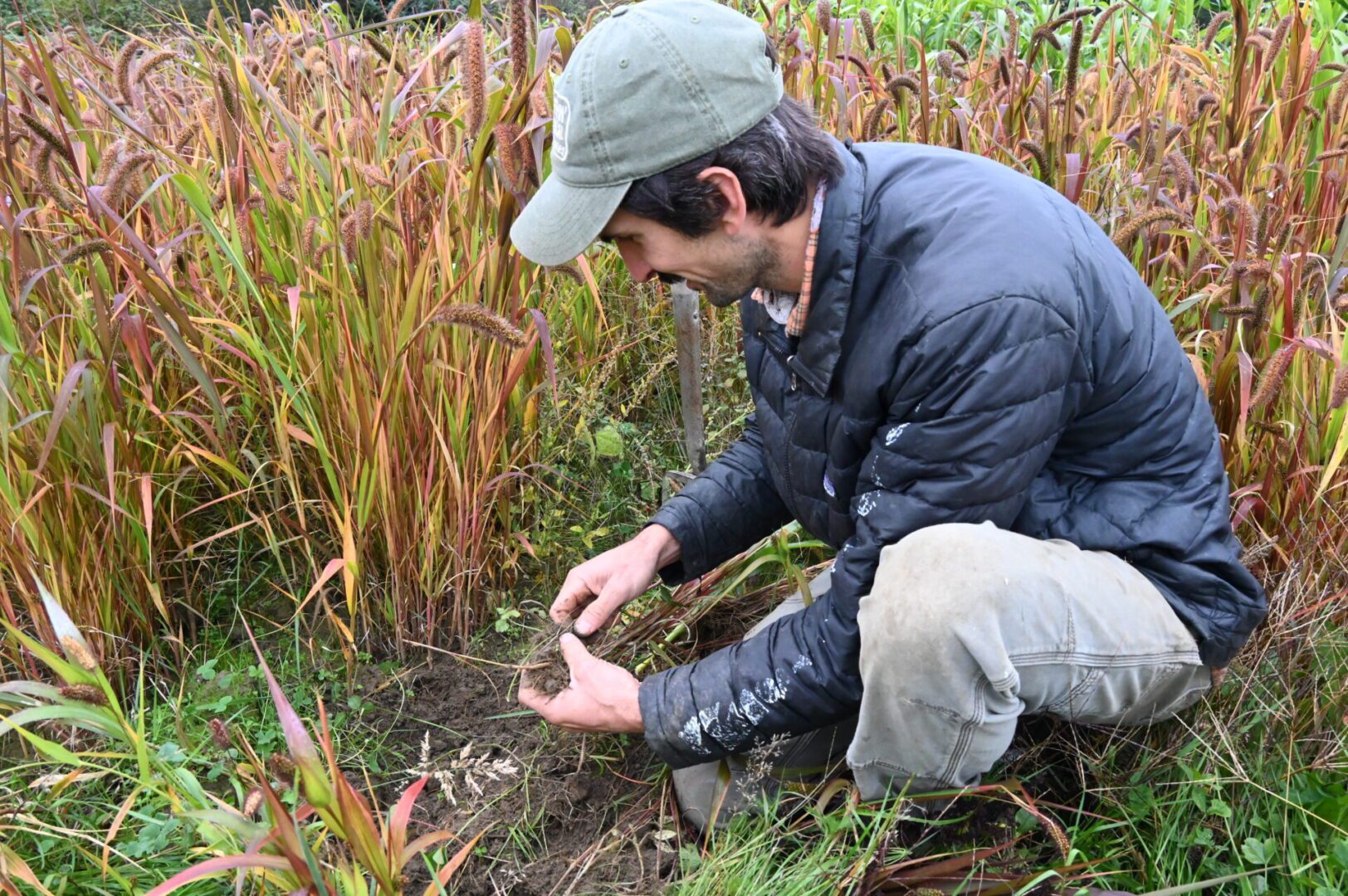
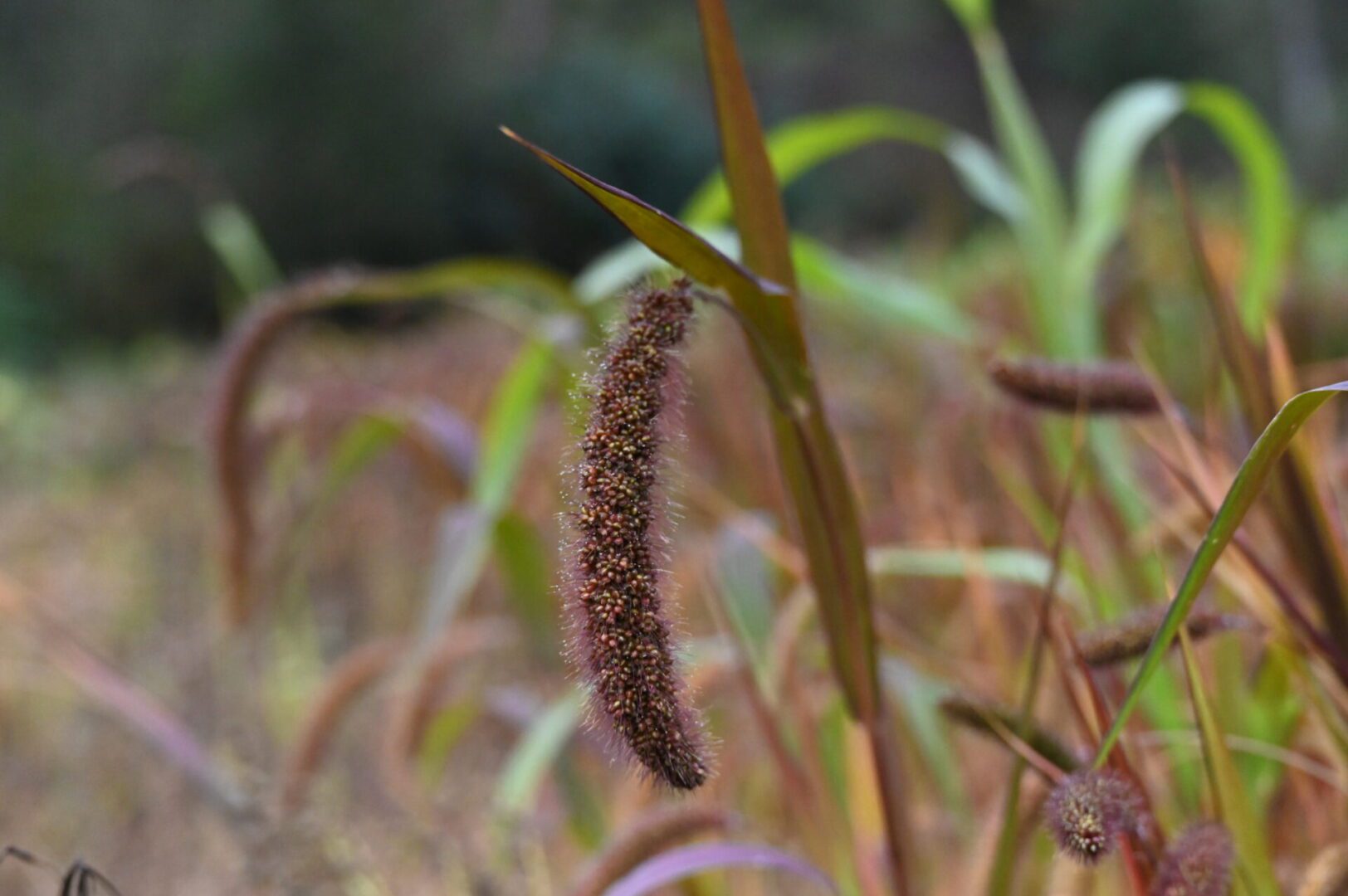
German Foxtail millet - © Leslie Michel, WSDA
Want to connect with Anthony?
Fill out the form below
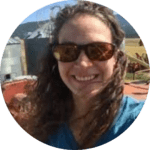
Leslie Michel
Leslie works with counties on the Voluntary Stewardship Program through the Washington State Department of Agricutlure, providing technical support on their monitoring plans. She also assists with the Washington Soil Health Initiative and Sustainable Farms and Fields program by providing support for soil sampling.
This article was published by the Washington Soil Health Initiative. For more information, visit wasoilhealth.org. To have these posts delivered straight to your inbox, subscribe to the WaSHI newsletter. To find a soil science technical service provider, visit the Washington State University Extension website or the Washington State Conservation District website.

